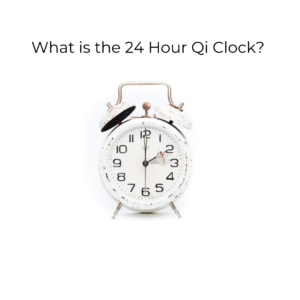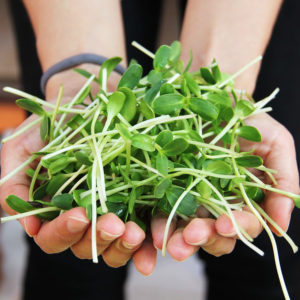Uncategorized
Exploring the 24 Hour Qi Clock

Exploring the 24 Hour Qi Clock
Most people are familiar with the terms diurnal and nocturnal. Diurnal means active during the daytime, while nocturnal means active during the nighttime. Together the two make up a 24-hour cycle known as a day. But, in Traditional Chinese Medicine, this 24-hour cycle is viewed as much more than just a day in the life. The 24 hours of the day are viewed as increments of time and every two-hour section is associated with a specific energetic meridian that runs through the body.
This is known as the Qi clock.
Do you wake up every night or every morning about the same time? Have you ever wondered why? Some people call that an internal clock. In Chinese medicine, this gives a much deeper look into how the body functions though. Chinese medical theory divides the body based upon the 12 energetic meridians. Each of the meridians is assigned a two-hour time slot. For example, the liver meridian is associated with the hours of 1 a.m. to 3 a.m. If you wake up during this time frame, then its an indication something is going on with your liver meridian. So knowing this information can be very important to an acupuncturist/Chinese medicine practitioner.
During a 24-hour period, your energy or Qi (pronounced “chee”) moves through the organ systems in two-hour intervals. Qi draws inward to help restore the body between the hours of 1 a.m. and 3 a.m. The liver cleanses the blood and performs other functions, such as getting the blood ready to travel outward into the rest of the body. Over the next 12 hours, Qi cycles through the organs that assimilate, digest and eliminate food through the body or our diurnal organs. By mid-afternoon, the body begins to slow down again in preparation for the nocturnal phase. The nocturnal phase is all about restoring and maintaining. So when one organ system is at its peak, its counterpart, on the opposite side of the clock is at its lowest point. An example is 7 a.m. to 9 a.m., which are the hours of the stomach. This is when the stomach is at its peak and also why it is recommended to eat a big breakfast. On the opposite side of the clock lies the pericardium, which is associated with the pituitary, hypothalamus and reproductive organs. The pericardium is at its weakest point between the hours of 7 a.m. and 9 a.m.
Here’s a brief summary of the 24 hour Qi cycle:
- 3 a.m. to 5 a.m. is lung time
- 5 a.m. to 7 a.m. is large intestine time
- 7 a.m. to 9 a.m. is stomach time
- 9 a.m. to 11 a.m. is spleen time
- 11 a.m. to 1 a.m. is heart time
- 1 p.m. to 3 p.m. is small intestine time
- 3 p.m. to 5 p.m. is urinary bladder time
- 5 p.m. to 7 p.m. is kidney time
- 7 p.m. to 9 p.m. is pericardium time
- 9 p.m. to 11 p.m. is triple burner time
- 11 p.m. to 1 a.m. is gall bladder time
- 1 a.m. to 3 a.m. is liver time
So if you have recurring problems at the same time every day, then there is a good chance that the organ/meridian associated with that time is in distress. This is why Traditional Chinese Medicine practitioners ask so many questions and also why they look at the body as a whole instead of just one particular organ. By understanding that every organ/energetic meridian has a maintenance schedule to keep daily, you can then treat your body properly so you achieve the ultimate health and well-being and acupuncture can help you achieve that goal. Acupuncturists treat the body based on things like your symptomology, your pulses, your tongue and the 24-hour Qi clock indications you exhibit. The goal is to bring the body back into balance and knowing when the meridians are at their peaks and valleys is a great place to begin.
Healthy Foods for Fall

The season of fall brings cooler weather and shorter days. As with any season, the world adjusts accordingly. Plants begin to go dormant, animals begin scrounging for food to store to get them through the upcoming winter months and humans start winterizing everything.
As fall descends on the land, it reminds us we need to start cutting back on the numerous cooling foods that are consumed during the summer months. Things like raw foods, salads, juices and fruits should be decreased because they can create too much cold in the body, according to traditional Chinese medicine. continue reading
Five Reasons to Get Acupuncture for Low Back Pain

Statistics show eight out of 10 people will experience low back pain at some point during their life. Seeking medical treatment for back pain is very common. Typically back pain is fleeting and can be easily resolved with rest, heat and an occasional anti-inflammatory like ibuprofen. However, once the damage is done, the recurrence of back pain can be as high as 50 percent. Part of this is because as we age, things like muscles and tendons become less flexible and pliable. It is also very well known in the United States, people are too sedentary and this leads to excess weight gain that can create added pressure on the body, especially the low back. continue reading








